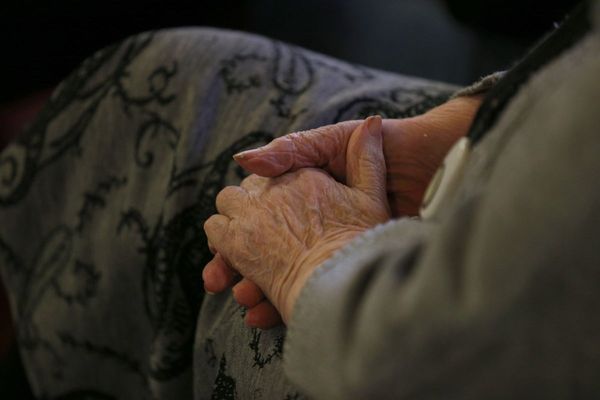
LGBTQ+ advocates are urging the Victorian government to do more to protect the queer community after threats from far-right groups led to five Melbourne drag events being cancelled in the past six months.
They say that while cancellations may protect people at an individual event, calling them off may embolden anti-LGBTQ+ groups to target other events.
Monash council announced Thursday it was cancelling an upcoming drag storytime event at Oakleigh Library in Melbourne after threats of violence and intimidation against councillors, families booked to attend the event, the performer and council staff.
In a statement, Monash chief executive Andi Diamond said the event had been designed to introduce children to diverse role models and encourage acceptance of the LGBTQ+ community, but the council made the decision to cancel it as they were not able to guarantee that the event could be held safely.
“Councillors and staff have received messages that nobody should be expected to receive in their workplace, as have our LGBTIQA+ community. In recent days these threats have escalated to direct threats of violence involving the event itself.”
The event became the fifth LGBTQ+ event in just six months to be cancelled, after previous events were cancelled in other parts of Melbourne. One of those – a performance by Kitty Obsidian – was cancelled by Hume council but is now scheduled to go ahead after community backlash.
Other queer events have also been targeted. In July last year, Melbourne’s Shrine of Remembrance cancelled plans to light up the site in rainbow colours to commemorate queer veterans, citing “abuse” and threats directed at staff.
Over encrypted messaging app Telegram, far-right groups celebrated Monash council’s cancellation, proclaiming it “a victory” and promising to campaign against future queer events.
After Thursday’s announcement, Victoria police said the safety strategy for queer events is an “issue for councils” who should be preparing their own safety plans.

A spokesperson for Victoria police said it held a state-wide meeting last month for council employees to provide advice and support on hosting LGBTQ+ events, including by preparing safety plans and risk assessments. They are also preparing a notification form to help event organisers arrange police support, the spokesperson said.
The cancellation has also put more pressure on the state government to move on anti-vilification laws, with the Victorian Greens saying the changes are needed to protect the LGBTQ+ community against threats of violence.
But Victorian Pride Lobby’s Sean Mulcahy said police, councils and the state government needed to do more to protect the queer community from threats and make sure family-friendly events could go ahead.
He called for laws protecting LGBTQ+ people from vilification, which covers inciting hatred in the public sphere, whether online or on the steps of parliament. Vilifying a person because of their race or religion is illegal in Victoria.
“If we had stronger anti-vilification laws, if police were willing to enforce the laws that they have, and if councils worked to ensure that their local laws were enforced, then we will be able to deal with these issues early on,” Mulcahy said.
“I appreciate there are difficult decisions around running these events, due to risks to community safety, but cancelling the events also poses a risk … because while it might protect the people that are attending that particular event, it just emboldens the anti-LGBTQIA+ forces to go on and target other people.”
Omar Hassan, a spokesperson for Campaign Against Racism and Fascism, said it was “irresponsible” of councils to continue to “cede to the demands” of the far right.
“Cancelling these events is essentially granting these people a victory,” he said.
Victorian Greens LGBTIQA+ spokesperson, Gabrielle de Vietri, accused the state government of lagging on anti-vilification.
“The time to act was long ago,” de Vietri said, noting that in 2021 the government had agreed with expanding anti-vilification laws in principle, subject to funding.
“The funding never came about and so nothing has been done.”
The Victorian attorney general, Jaclyn Symes, told parliament on Thursday that Labor was committed to changing the anti-vilification laws, but said it would take 18 months as she had to work on changes to bail conditions and look at raising the age of criminal responsibility first.
The minister for equality, Harriet Shing, said in a statement the government was “working to extend anti-vilification protections to protect LGBTIQ+ Victorians and other vulnerable members of our community who are experiencing enormous distress, discrimination, and stigma”.
“We’re proud and determined to stand with LGBTIQ+ Victorians with additional funding, visibility, support and law reform,” Shing said.
Every council across Melbourne has promised to raise the pride flag on the International Day Against Homophobia, Biphobia and Transphobia on 17 May to show their support to the LGBTQ+ community, she said.
Liam Elphick, a discrimination law expert at Monash University, said if the government had taken steps two years ago when it committed to changing the law, law enforcement would have greater powers to take action against the attacks on the Monash event.
“By leaving this gap in our hate speech laws, it means that councils, law enforcement and the community have far fewer tools to stop hate speech against LGBTIQA+ people than we do for other groups.”







